Picture a mountain of discarded material, towering as big as the University of Georgia’s 200,000-square-foot Miller Learning Center, destined for the landfill.
That is the size of the 10 million pounds of materials UGA sends to the landfill each year. But through the doors of that same building is a place where unwanted items can be traded instead of discarded.
In 2021, two UGA students, Jenna Franke and Avery Lumsden, started Swap Shop to lessen overconsumption and waste on campus.
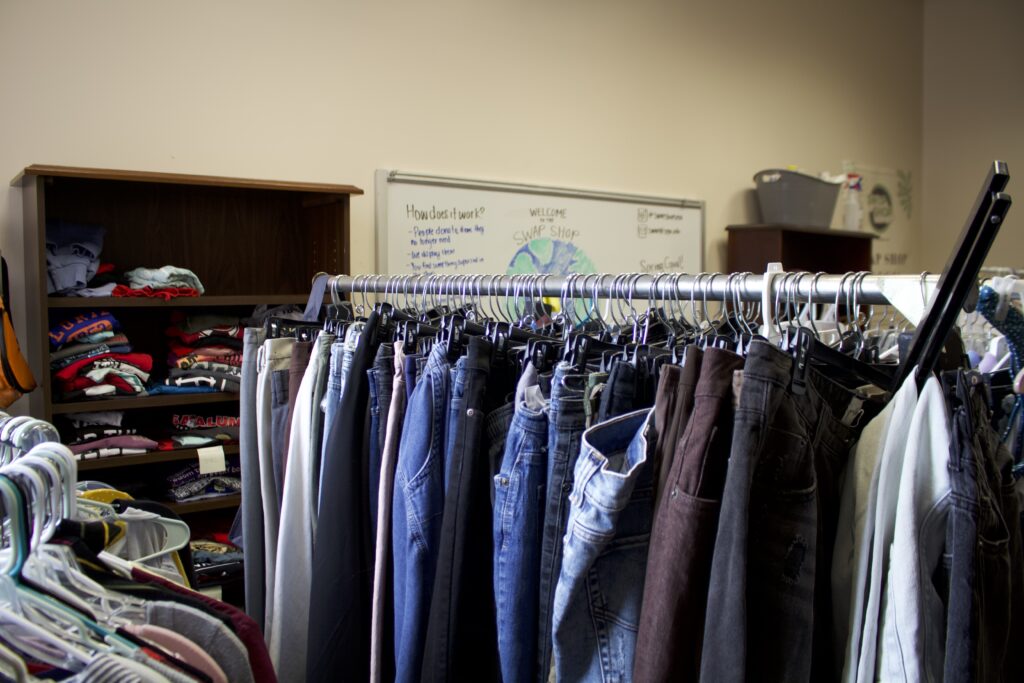
The clothing industry has become one of the most polluting. According to the World Wildlife Fund, making one cotton shirt takes 2,700 liters of water. Then when those clothes are thrown away, they can take over 200 years to decompose in landfills. During decomposition, textiles generate greenhouse methane gas and leach toxic chemicals and dyes into the soil and groundwater.
But Franke and Lunsden remembered the old saying: “One man’s trash is another man’s treasure.”
With the help of a grant from the University of Georgia’s Office of Sustainability and a partnership with UGA libraries, they set up a small room on the second floor of the Miller Learning Center. The room holds clothes, shoes, textbooks and other household items that once belonged to members of the Athens community and are ready to be traded.
Why It’s Newsworthy: When consumers throw their used belongings into the landfill, those materials accumulate and release toxic chemicals into the air and soil, such as methane, carbon dioxide and more. Overconsumption worsens this problem, so students at the University of Georgia have taken it upon themselves to create an accessible second-hand shopping hub on their campus.Saumya Malik, director of marketing and communications for Swap Shop, says that as fast fashion is on the rise, sustainable practices are needed more than ever.
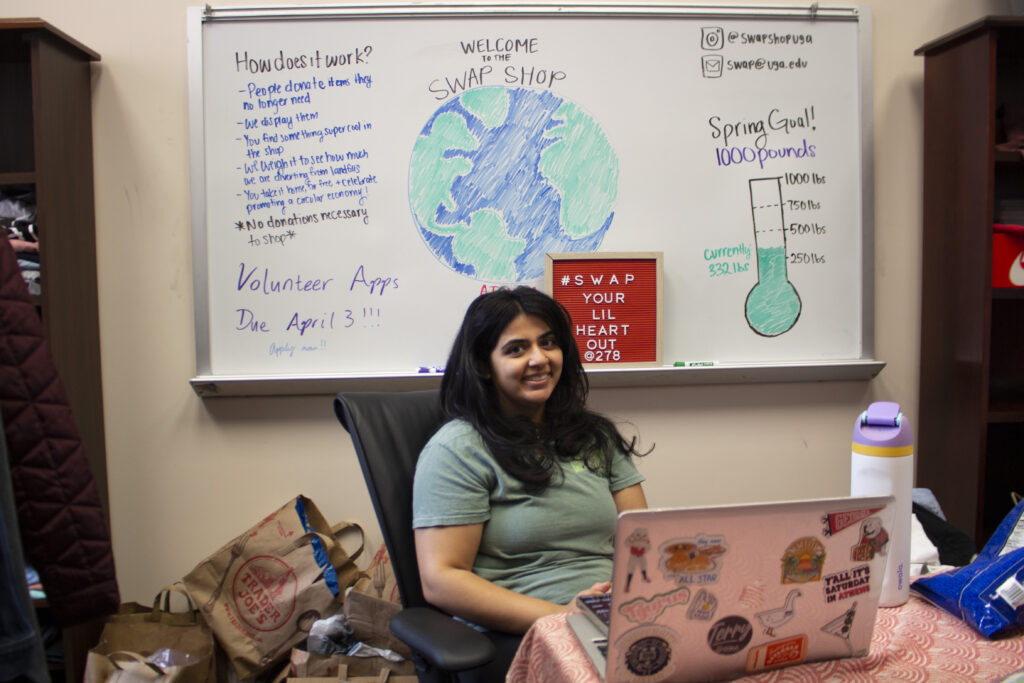
“There has been a rise of fast fashion, which has really accelerated these trend cycles in a way that people are buying new clothes every season and because they are buying new clothes, they are not using the ones that they were using earlier, and they are not mending things as much,” Malik says.
At Swap Shop’s repair workshops, they provide materials and teach people how to fix their items, such as mending a hole or replacing a missing button.
Not only is overconsumption costly to the environment, but people are suffering too. Sara Idacavage, a fashion historian and sustainable fashion educator, says that the bombardment of advertising we access through technology makes us more susceptible to overconsumption.
“Our phones really kind of tell us to buy more and more, so I think it is perfectly natural to overconsume in today’s day and age,” Idacavage says. “The problem is that we are so disconnected from the people who are making the clothing that not everyone even stops to question ‘how could a shirt possibly be $3.99…’”
According to Idacavage, it is not possible to produce clothing for that cheap unless someone else is being exploited, such as through wage slavery or pollution. Even the people living in the surrounding areas of these factories are negatively impacted due to pollutants entering their food and water supply as dyes find their way into local waterways. Yet buying reliable pieces or second-hand provides an inexpensive solution.
In the fall of 2023, Swap Shop says they diverted 872 pounds of trash from the landfill, and since its founding, the effort has saved 2,709 pounds from the landfill.
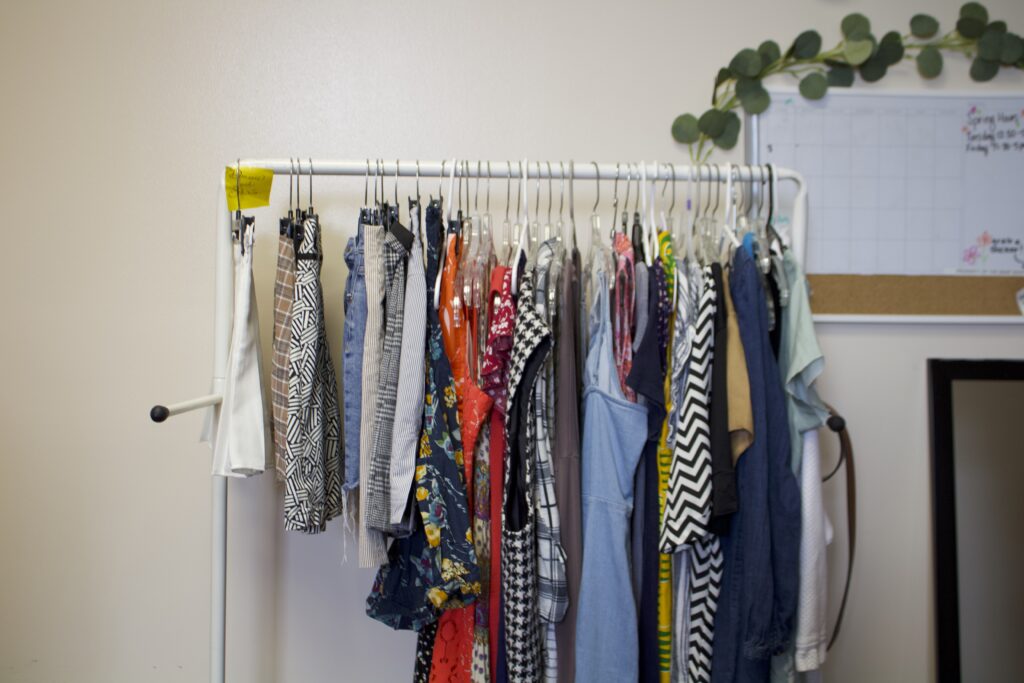
One of Swap Shop’s most familiar faces is Abigail Ventimiglia. Since her sophomore year, she has stopped by the shop about once a week to drop off her used items and see if she can swap anything. She notes that a common misconception is that you must give something away to receive an item. However, if you have nothing to give away, you can still receive items and contribute to extending its life cycle.
“I go like every week and all of the staff, or volunteers, know me, and it’s just this very fun community, where I show up, we chit-chat for like 15 minutes and then I leave. It’s a very small, but important highlight of my week,” Ventimiglia says.
Although Swap Shop does not take any items with major quality issues, sometimes clothes need alterations or small repairs. For Ventimiglia, this is actually a positive.
“I actually think it’s a very fun opportunity like I started doing embroidery during the pandemic, but I ran into this issue where I love my clothes. I’ve spent so much money and time finding them, I don’t want to just ruin it on my amateur embroidery, but with the Swap Shop, if something has a stain or a little cut, and I need to fix it I can just make that my next embroidery project,” Ventimiglia says while showing three flowers neatly embroidered into her green t-shirt.
Isabelle Atkins is a senior majoring in journalism at the Grady College of Journalism and Mass Communication, with a minor in design and media from the Lamar Dodd School of Art.


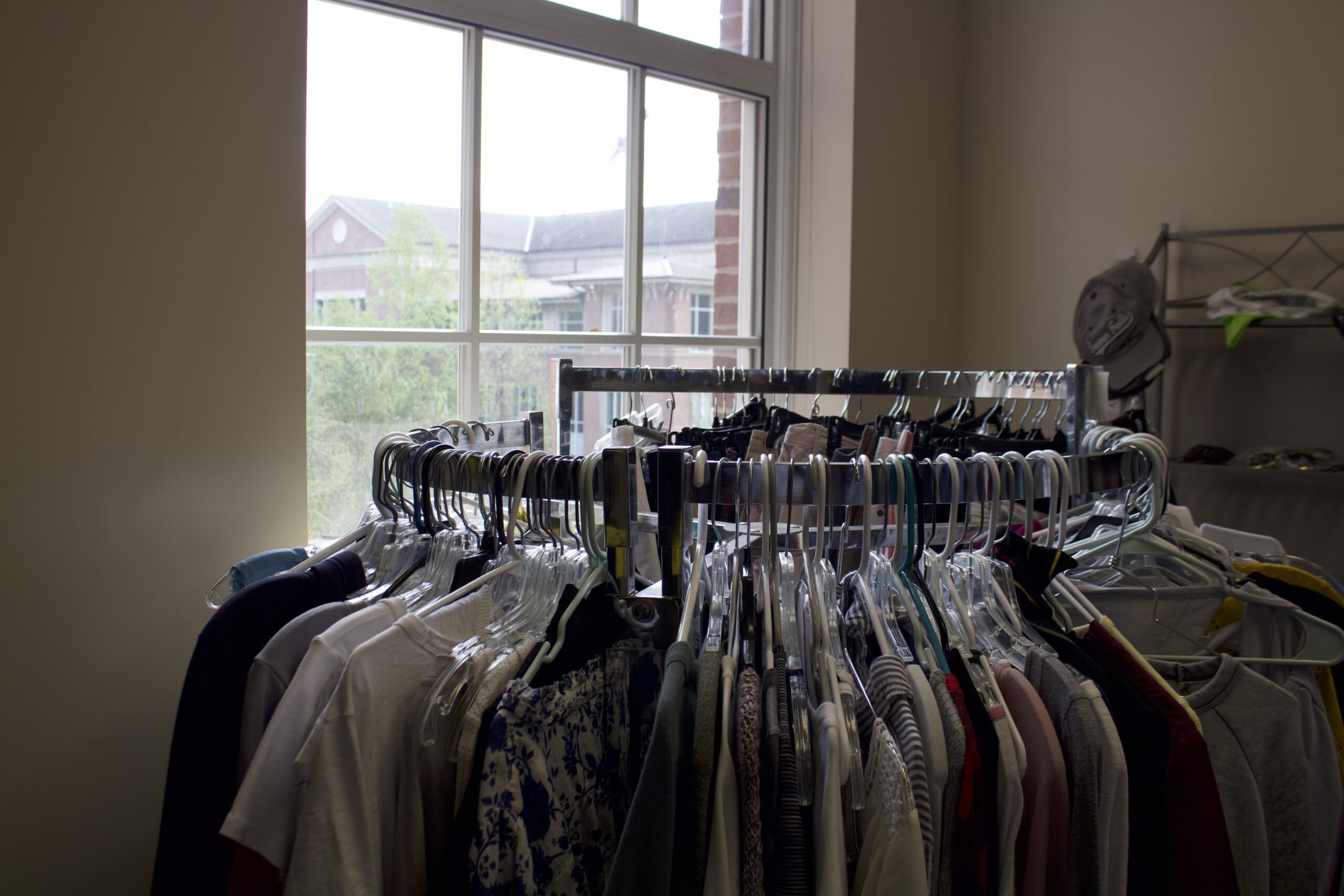



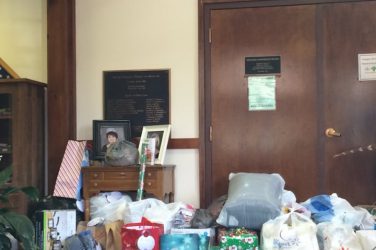


Show Comments (1)